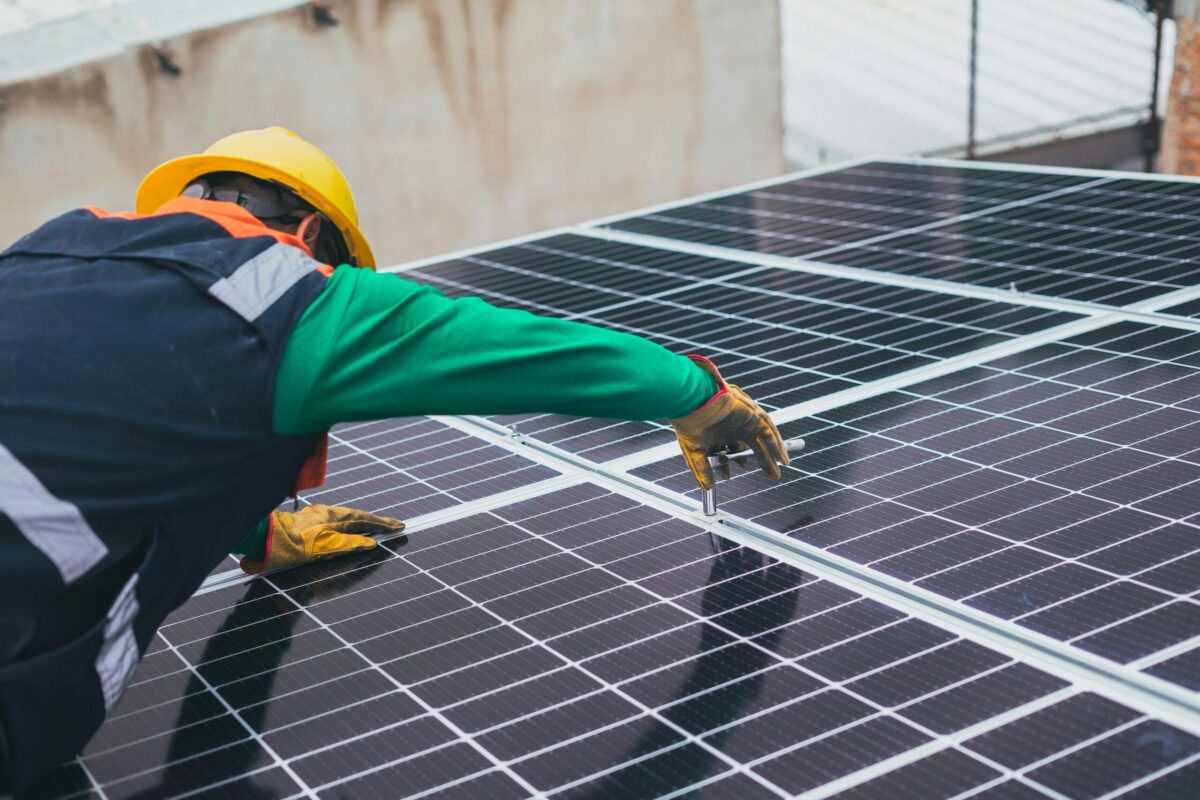More than 400 companies across the solar supply chain sent a letter to Congress imploring them not to repeal President Biden’s solar tariff moratorium.
The moratorium was announced in June of 2022 in response to the uncertainty in the solar industry caused by the Department of Commerce anti-dumping investigation. At the same time, President Biden invoked the Defense Production Act as a means of accelerating U.S. manufacturing across the solar supply chain in an attempt to alleviate dependency on imported solar goods. hardware and materials. A group of lawmakers are currently attempting to overturn the moratorium on tariffs and force American companies to pay more than $1 billion in retroactive duties.
“The tariff pause provided business certainty that kept solar projects moving forward while providing a bridge for domestic manufacturing to grow. This deeply flawed use of the Congressional Review Act (CRA) rips the rug out from underneath American businesses and will cause thousands of workers to lose their livelihoods,” said Abigail Ross Hopper, president and CEO of the Solar Energy Industries Association (SEIA).
The letter expresses opposition to H.J. Res 39, stating that its passage would have “significant detrimental effects for the solar workforce, climate, business certainty, and domestic energy deployment.”
H.J. Res 39 is introduced just as the Inflation Reduction Act has set in motion a wave of new manufacturing deployment across the supply chain in the U.S. Analysis from SEIA shows that passing this CRA legislation will eliminate 30,000 American jobs, including 4,000 manufacturing jobs. SEIA projects that it could cancel 4 GW of solar project deployment or 14% of solar deployments expected in 2023. This represents more than $4.2 billion in investment, and would increase carbon emissions from the power sector by an estimated 24 million metric tons.
The DOE’s “Solar Futures Study” predicts aggressive cost reduction, supportive policy, and large-scale electrification will mean solar could supply 40% of U.S. electricity in 2035, and 45% in 2050. That would require average annual growth of 30 GW in new solar capacity this year and next, rising to 60 GW extra per year from 2025 to 2030, for a terawatt of new solar capacity by 2035.
The letter states that “The United States has the potential to become a leader in solar manufacturing,” and it emphasizes the projected growth in solar manufacturing, which the National Renewable Energy Lab forecasts could be as much as 42 GW in capacity for solar modules alone. “The two-year moratorium unfroze the solar marketplace and provided a bridge for domestic solar manufacturing to scale up and meet domestic demand for solar panels,” the letter summarizes.
“This misguided resolution would stall America’s clean energy progress and put thousands of construction jobs at risk,” said George Hershman, chief executive officer of SOLV Energy and chair of SEIA’s board. Hershman pointed to the benefits the industry has seen since the moratorium went into effect, combined with investments from the Inflation Reduction Act. “Ending the two-year reprieve would effectively halt our momentum and undercut American growth in this industry. We need Congress to stand with solar job creators and reject this dangerous effort.”
Update: The House Ways and Means Committee approved legislation on April 19 to repeal the Biden administration’s June 2022 proclamation to provide a two-year moratorium for new solar tariffs. The legislation invokes the Congressional Review Act (CRA) to repeal the moratorium, and now moves toward a vote by the full House of Representatives.
This content is protected by copyright and may not be reused. If you want to cooperate with us and would like to reuse some of our content, please contact: editors@pv-magazine.com.









By submitting this form you agree to pv magazine using your data for the purposes of publishing your comment.
Your personal data will only be disclosed or otherwise transmitted to third parties for the purposes of spam filtering or if this is necessary for technical maintenance of the website. Any other transfer to third parties will not take place unless this is justified on the basis of applicable data protection regulations or if pv magazine is legally obliged to do so.
You may revoke this consent at any time with effect for the future, in which case your personal data will be deleted immediately. Otherwise, your data will be deleted if pv magazine has processed your request or the purpose of data storage is fulfilled.
Further information on data privacy can be found in our Data Protection Policy.